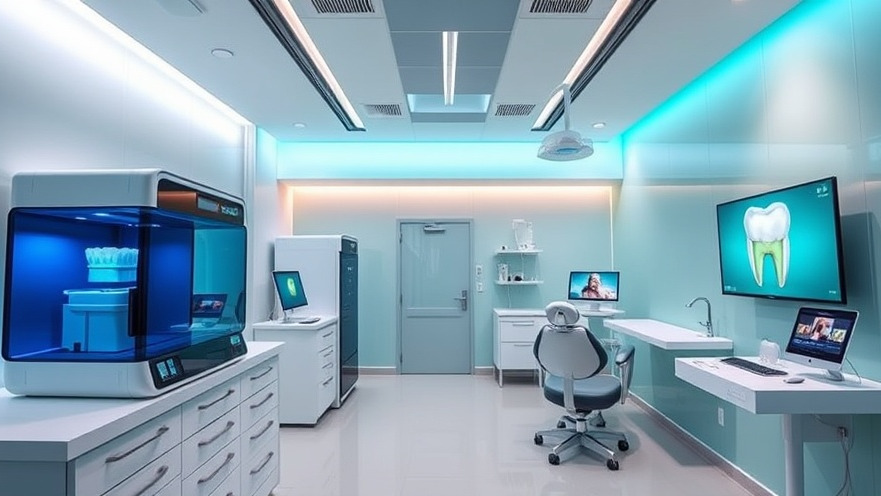
Discovering the Future of Dentistry: Embracing Advanced Technologies
As we look towards the horizon of dental technology, it’s clear that the next five years will usher in unprecedented innovations. Leaders within the dental field, such as Dr. Marci Levine and Dr. Sundeep Rawal, are paving the way for a remarkable transformation driven by technologies like artificial intelligence (AI), virtual reality (VR), and robotics. Their insights highlight a critical shift towards more integrated, technologically advanced practices that enhance patient care.
Transforming Patient Expectations and Experience
Dr. Levine, a noted clinical associate professor, illustrated how patient perceptions will evolve alongside these advancements. Traditionally, dentistry has been perceived as a routine, almost mechanical process; however, as these technologies become commonplace, patients will expect their dental providers to not only be familiar with the latest innovations but adept at utilizing them.
The tactile nature of dental practice is also being transformed through VR and augmented reality (AR). Future dental professionals will train in simulated environments that mimic real-world experiences, thus enhancing their readiness and confidence to meet patient needs. This shift is expected to lead to higher quality outcomes, as students increasingly embrace technological fluency from the outset of their careers.
The AI Revolution in Dentistry
Dr. Rawal predicts a radical departure from current practice norms due to AI’s pervasive influence. By standardizing processes, AI could streamline treatment plans and enhance diagnostic accuracy. This means a shift not just in clinical practice but also in how dental offices operate on a fundamental level.
As AI takes on roles traditionally held by human practitioners, the profession will see a redistribution of duties, allowing dentists to focus more on patient care rather than administrative tasks. This could result in a more efficient practice model, drastically altering patient experiences and expectations.
Charting a New Course for Dental Practices
The implications of these technologies extend beyond medical applications; they touch upon practice growth and patient trust. As practices adopt AI and other innovations, the potential to enhance operational efficiencies and patient satisfaction is immense. Moreover, embracing technology fosters transparency, a key ingredient in building long-term relationships based on trust within the community.
Moreover, the collaborative nature of these technologies means that dental practices can engage with patients in new, more effective ways. Data analytics can better inform practice management, creating opportunities for tailored patient interactions that lead to greater chances of success in treatment outcomes.
Challenges and Considerations for Integration
Despite the promising future, challenges lie ahead in integrating these technologies into everyday practice. Resistance to change, whether due to a lack of training or the comfort of established routines, represents a significant barrier. Practitioners must be encouraged to adapt, continuously learn, and embrace new methods and tools if they are to thrive in a transforming landscape.
Moreover, consideration must also be taken regarding data security as practices increasingly rely on AI systems. Ensuring patient privacy and securing sensitive information must remain a top priority, underscoring the need for robust cybersecurity measures to accompany technological advancements.
Conclusion: Preparing for Tomorrow's Dentistry
Dental practitioners must stay awake to the shifts that technology is bringing into their field. Placing emphasis on continuous education and being adaptable will help dentists like you, Dr. Emily Johnson, navigate this rapidly changing environment. Understanding how AI, VR, and robotics intersect with dental care is vital for staying ahead and providing the best patient outcomes.
Embracing these changes today prepares dental practices for a more innovative and effective tomorrow. Let’s challenge ourselves to make the upcoming years a significant chapter in the evolution of dentistry.
 Add Row
Add Row  Add
Add 




Write A Comment